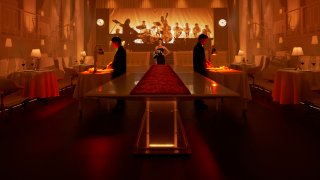
While Michelin-starred meals can cost just $1.50 per plate, most restaurants that have earned the prestigious award charge much more.
Many cost $300-$400 for one meal, but some command even higher rates.
To find the most expensive Michelin-starred restaurants, the cooking website Chef's Pencil researched dinner tasting menus in more than 450 restaurants around the world, according to its website.
The top 10
Get top local stories in Southern California delivered to you every morning. >Sign up for NBC LA's News Headlines newsletter.
According to Chef's Pencil, the 10 most expensive restaurants* that have either received a Michelin star — or are helmed by a chef that has — are:
1. Sublimotion, Ibiza, Spain — $1,740
2. Ultraviolet by Paul Pairet, Shanghai, China — $1,422
Money Report
3. Kitcho Arashiyama Honten, Kyoto, Japan — $910
4. Azabu Kadowaki, Tokyo, Japan — $825
5. Masa, New York City, United States — $800
6. (Tie) Joel Robuchon, Tokyo, Japan — $637
6. (Tie) Kikunoi Honten, Kyoto, Japan — $637
6. (Tie) Gion Maruyama, Kyoto, Japan — $637
9. Guy Savoy, Paris, France — $615
10. Piazza Duomo, Alba, Italy — $580
* Priced per person, usually not including beverages and service charges.
Japan is the only country that appears more than once on this list, and its restaurants — located in Kyoto and Tokyo — dominate half the 10 spots. It's worth noting, however, that Tokyo-based Joel Robuchon, which tied for No. 6 on the list, serves French cuisine.
The United States' only restaurant to make the top 10, Masa, is also a Japanese restaurant.
Japan is home to the highest number of Michelin restaurants per capita in the world, with Tokyo having more Michelin-starred restaurants than any other city, according to Chef's Pencil.
Why Japanese restaurants can be so expensive
There are reasons why many Japanese restaurants are expensive, said Chef Masaharu Morimoto, known to millions as the star of the television cooking shows "Iron Chef" and "Iron Chef America."
"Japanese restaurants source seasonal fish from all over the world, which increases the cost of the ingredients," he said. "There is also a cost of proper shipping and storage for these ingredients, considering fresh seafood has a short shelf life."
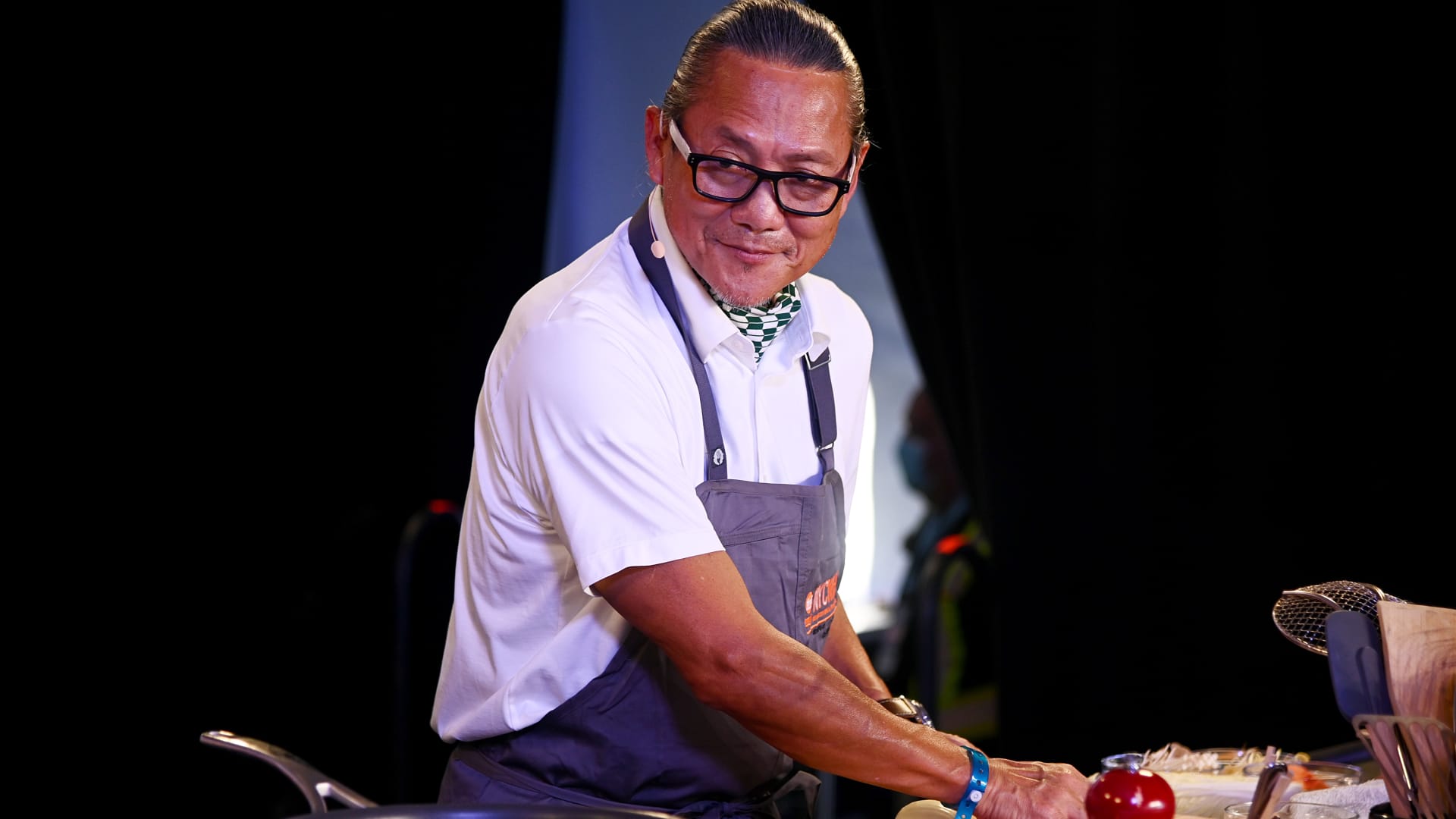
Morimoto said "the skills the chef has — the precision and artistry in making and serving the dishes" are other factors.
Japanese restaurants can be quite small, with diners receiving personal attention from the chef.
"Restaurants with a limited number of seats usually try to provide an intimate and meaningful food experience for their guests," said Morimoto. "Many notable sushi restaurants have a maximum of eight seats — no servers or additional staff."
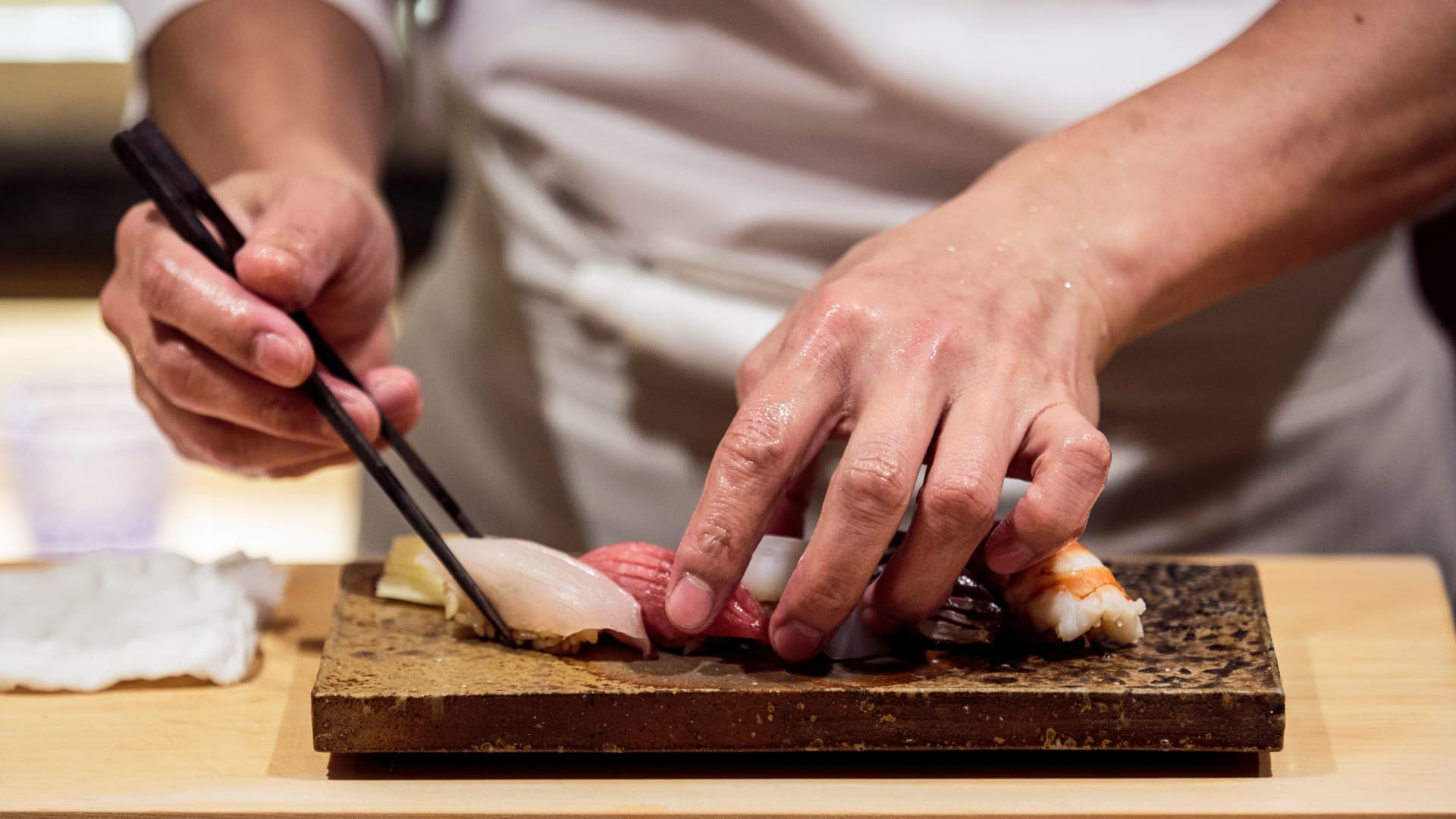
Many meals at high-end Japanese restaurants are served omakase-style, where chefs choose what to serve. That lets chefs prepare "an adventure unlike any other" for "an unforgettable multi-course dining experience that features the freshest fish and various other special ingredients that are reserved for this truly unique meal," said Morimoto.
Most expensive meals by country
Despite dominating the list of most expensive restaurants, Japan may not be the most expensive country overall for people who seek a top Michelin-star experience.
A separate analysis by Chef's Pencil published in September analyzed the prices of the most expensive tasting menus at restaurants with two and three Michelin stars.
Japan was fourth on that list.
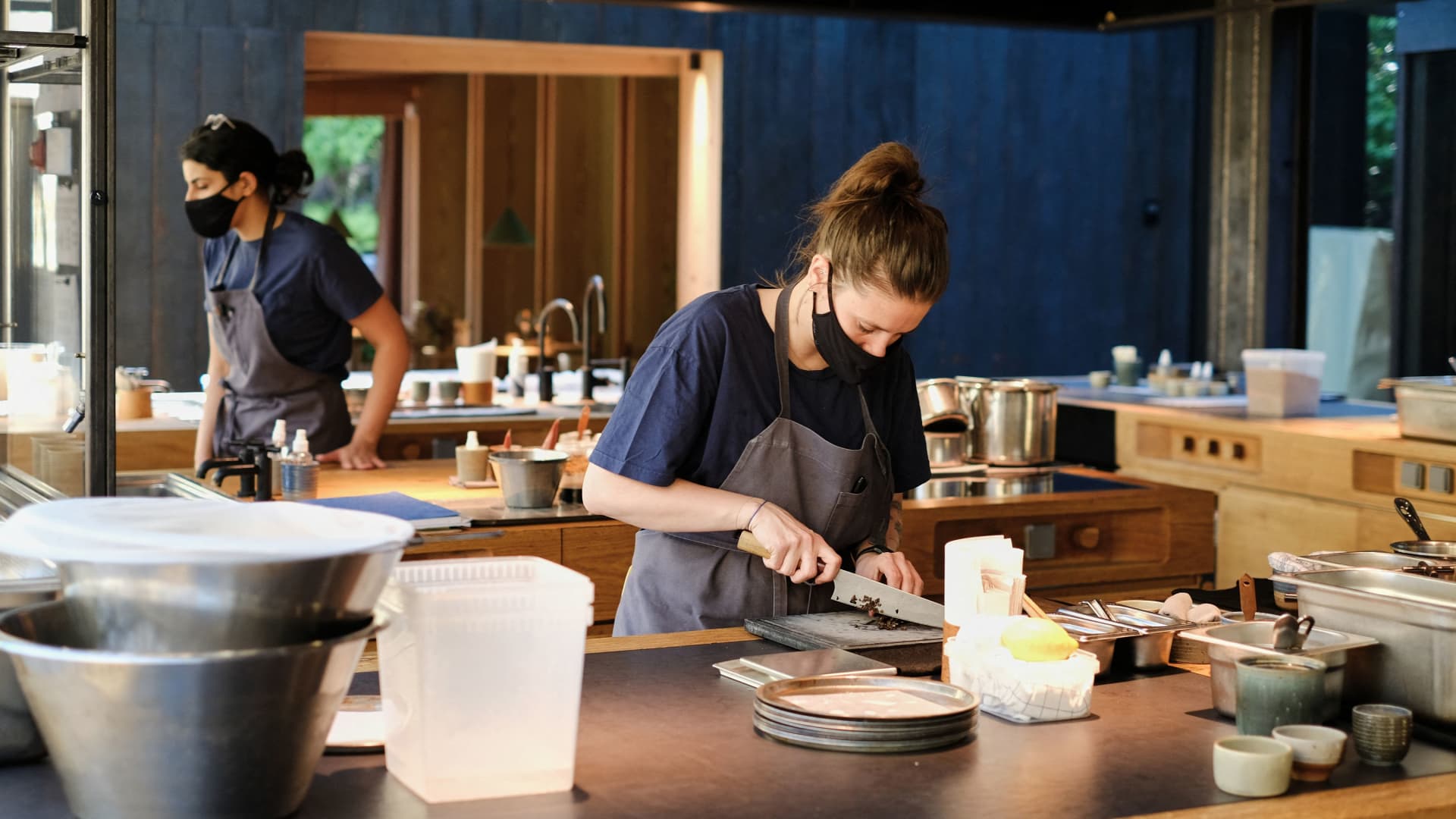
Denmark is the most expensive country to dine at a top Michelin-starred restaurant, with tasting menus averaging $404 per person. The restaurants in Singapore average $364, and in Sweden $327.
The average cost to dine at a two or three Michelin-starred restaurant in Japan is $322, according to the report.
A meal for $1,740?
While Japanese restaurants are often simple, the most expensive restaurant on Chef Pencil's restaurant list is the opposite.
Located on the Spanish island of Ibiza, Sublimotion is the world's first "gastronomic performance," said founder Eduardo Gonzales.
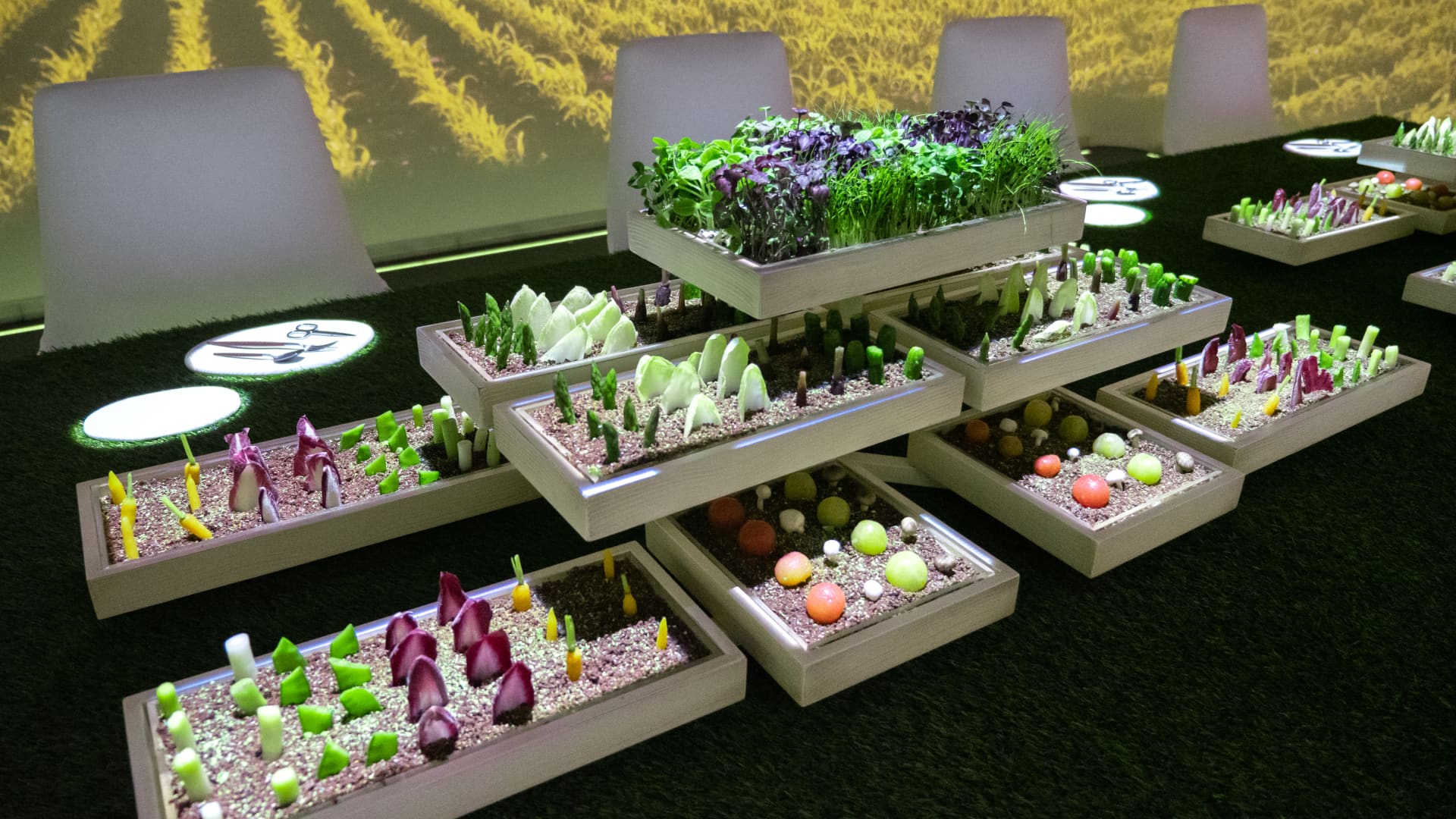
Its priciest tasting menu costs $1,740 per person for a 20-course meal. Seating 12 at a time, the restaurant uses virtual reality and special effects to add light and sound elements to the meal, he said.
In addition to chefs, a team of engineers, illusionists, scriptwriters and composers worked together "for more than 10 years with the aim of maximizing the pleasure of sitting at the table," Gonzales said.
The restaurant, opened in 2014, is helmed by Michelin-starred Chef Paco Roncero, though it has yet to receive a star itself.






